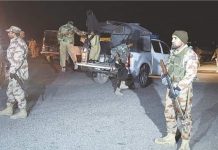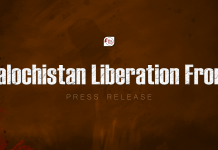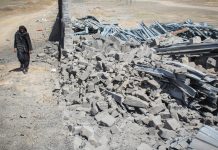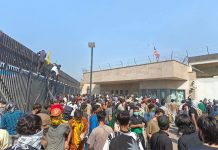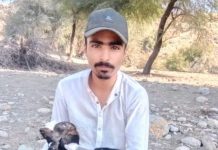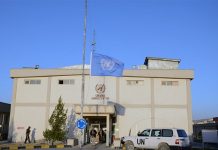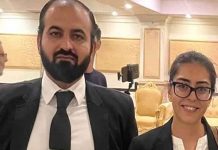By Sarang Baloch
The Baloch people have a long and complex political history, characterized by the presence of influential figures and various challenges. Within Baloch society, there are individuals who exploit slogans like “rights of Baloch” and “issues of missing persons” for their personal gain. Additionally, there are known death squads sponsored by the state, who act as enemies of the Baloch people, carrying out killings and abductions.
However, it is essential to recognize that nationalist parties and individuals also exploit the term “Baloch” for their own interests, as previously mentioned. These individuals take an oath to the Pakistani constitution while simultaneously striving to safeguard their own survival and interests. While they may occasionally speak up for missing persons and resign from government positions, the specific demands for Baloch rights remain ambiguous and undefined, even to the ordinary Baloch. What exactly are the rights being sought? Is it infrastructure development, such as roads, schools, colleges, universities, hospitals, or financial aid? And why should we demand these from those who have occupied our land?
The Baloch people form a distinct nation, with Balochistan being their homeland. They are the rightful owners of all its resources. However, how can owners demand rights? We must acknowledge that our land has been occupied by Pakistan, and we are not a part of Pakistan. We have our own languages and identity. Therefore, these nationalist parties and individuals only seek to make us stand with them as subordinates. It is crucial to realize that they lack compassion for the Baloch, and the lives lost in the Baloch struggle hold no significance to them.
So far, we have discussed two types of Baloch: those who are clearly sponsored by the state and those who engage in double-dealing politics, attempting to confuse society for their personal gain.
However, there is a third category: Baloch sympathizers or semi-liberators. These individuals are primarily found outside the country and are active on social media. They analyze what they see on social media and sometimes resort to abusive language when an ordinary Baloch questions them. After defending and justifying their views, they may resort to abuse, claiming to be stressed. These individuals may include journalists or social media activists based in Canada, the United Kingdom, Germany, or elsewhere. For example, there is someone who tweets and condemns the self-sacrifice attacks by the Majeed Brigade, demanding an end to these attacks. At times, they position themselves as human rights champions while criticizing Baloch armed organizations. Their intentions are unclear, but they seem to want to be aligned with both sides, causing confusion because they are unsure of the path they should take—freedom from Pakistan or demanding rights from Pakistan. They have issues with self-sacrificers, even female self-sacrificers. For instance, a man condemns Shari Baloch, a member of the Majeed Brigade, for her attack on Chinese teachers. However, he is unaware that organizations like the BLA have repeatedly warned the Chinese to stop exploiting Balochistan, with audio, video, and documented statements available on social media. These people may simply be lost or unable to choose the right path.
In addition, there are feminist Baloch women who actively participate as social media activists or journalists. They argue that Baloch women should have equal rights as men, believing that the growth of Baloch society and the resolution of issues depend on gender equality. However, they fail to understand that the primary concern in Baloch society is the struggle faced by both men and women due to the illegal occupation by the colonizers. Balochistan needs armed resistance for its liberation. These feminist activists demand that the BLA’s Majeed Brigade should not involve women in fidayee (
self-sacrifice) attacks. The choice of words used by these activists, such as “use,” implies a negative connotation and a persuasive message. They criticize self-sacrificers like Shari Baloch and Sumiya Baloch, who have made the ultimate sacrifice for the liberation of their motherland.
However, it is important to note that the Majeed Brigade provides individuals with ample time to reconsider their decisions before carrying out self-sacrifice attacks. This ideology highlights that when a man or woman makes a self-sacrifice, it is a personal choice. If feminists believe in true equality between genders, how can they impose restrictions on women’s involvement in armed resistance or self-sacrifice attacks? We must understand the essence of feminism and accept women as equals alongside men. As human beings, both men and women have the right to choose their own paths and determine their roles in society. Only after Balochistan’s liberation will we be able to assess and pursue further aspects of a progressive society.
It is crucial for the Baloch people to comprehend and embrace the fact that men and women are equal and united in their political and armed resistance. This unity serves as evidence of equality. Currently, the Baloch people find themselves enslaved and occupied by an enemy, engaged in a struggle for freedom. Our first priority should be to achieve liberation, after which we can focus on developing an equitable and prosperous society.











